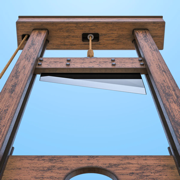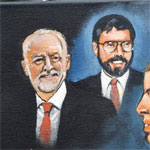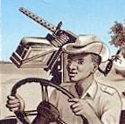|
There’s a reason it was known as “the mountain that eats men”.
|
|
|
|

|
| # ? Jun 8, 2024 08:41 |
|
Arglebargle III posted:Lake Superior has some pretty interesting geography because the lake basin was excavated over some really ancient granite. Isle Royale and the Porcupine Mountains in northern Wisconsin are remnants of some truly ancient mountain ranges. The porkies are barely hills at this point, but migration patterns of butterflies still go the long way around ancient peaks that haven't been an obstacle for millions of years. I gotta say that butterfly part sounds coincidental to me. Unless we have evidence of butterfly migration patters from centuries and millennia in the past.
|
|
|
|
Starks posted:I’m surprised no German cities made the list. Prague was by far the biggest "German" city at the time, with Cologne a distant second. Then during the 17th century the German cities got reduced even further: 
elbkaida fucked around with this message at 22:59 on May 26, 2020 |
|
|
|
System Metternich posted:It’s still a widely-used word for the French-speaking part of Switzerland ("Welschschweiz") and the Italian-speaking parts of Tyrol, ie today’s Trentino ("Welschtirol"). Oh, and the Walloons of course. Welsch-Bern = Verona Yes that Verona. The italian city. Home of Romeo and Juliet. To differentiate it from the german Bern which is some sort of capital city today?
|
|
|
|
Count Roland posted:I gotta say that butterfly part sounds coincidental to me. https://www.nytimes.com/2006/10/03/science/03butter.html Fight me
|
|
|
|
Mano posted:Well, it's complicated. Romand = Suisse Romand = French Speakers in Switzerland Having lived in Geneva(/Ginebra/Geneve/Genf) can confirm most of this. My bias is that I am fluent in English and bad in the 3 official Swiss languages, so Swiss people would often just switch to english for me. But they would also switch to english for each other and their main two STEM universities EPFL and ETHZ taught most of their technical classes in English. The one region where it felt truly German/French Bilingual was Valais where the canton (state equivalent) was bilingual as well. Most cantons have one overwhelming majority language.
|
|
|
|
Orange Devil posted:https://www.euratlas.net/history/europe/1600/entity_1122.html I honestly didn't know that. Thanks!
|
|
|
|
elbkaida posted:Prague was by far the biggest "German" city at the time, with Cologne a distant second. Then during the 17th century the German cities got reduced even further: Do we think most people in Prague spoke German at the start of the 17th century? Or was it always mostly Czech?
|
|
|
|
Squalid posted:Do we think most people in Prague spoke German at the start of the 17th century? Or was it always mostly Czech? From the 16th Century on all the way to the mid-19th century Prague was majority (or at least plurality) German-speaking, as far as I can see. As early as the 15th century, Jan Hus was famously complaining that the Czech spoken in Prague got more and more germanised due to the large presence of German-speaking craftsmen, merchants and especially university students there, and when Emperor Rudolf moved his court to Prague a century later, German speakers from all over the Empire followed him too. Prague‘s rapid growth after ~1850 finally led to a large number of Czech speakers from the surrounding areas moving into the city. In 1847, German-speakers outnumbered Czech ones 2:1, but ten years later it had already changed to a 59% Czech vs 41% German split Mano posted:In case anyone is interested, I can give a general guide to surviving as a German in Switzerland when it comes to speaking. Yes please! 
|
|
|
|
Swiss German is very weird to me. I'm Dutch and I can understand Hochdeutsch reasonably well. I can't make much sense of Swiss German - but here's the thing, the combination of vocals, the accent and actual mouth movements sound a lot like Dutch. As a Dutch person, listening to Swiss German is probably what it would be like to listen to my native language after I've had a stroke.
|
|
|
|
I have an aunt and an uncle born in NL who married a Swiss man and woman respectively and have lived in Switzerland for decades since. Their Dutch now has the same sort of sing-songy vocals that Swiss German has, it's quite endearing tbh.
|
|
|
|
Carbon dioxide posted:Swiss German is very weird to me. OTOH, I can listen in on Dutch when it's not spoken too fast. It's more musical, but often understandable. Reading is also possible if you know some of the most used sound movements (ie Dutch ij -> Geman ei, ui ->ü, v->f and sometimes s->sch). Surviving as a German in Switzerland: these are some of problems when coming to Switzerland for a longer time: a) you suddenly find out that what you thought of as Swiss-German till now, is actually our unbeholfen Versuch to talk High German to you, some form of High Swiss German but with some kind of accent. Between us we talk in whatever dialect(s). a1) there are people who really can't communicate in anything resembling High German. Don't worry, most of us don't understand them either. Wallis is infamous for this, but also Graubünden and the Urschweizer Kantone can be sometimes pretty strub. b) the next valley over has a slightly different dialect. If you speak the first one and move after 5 years, you will be marked as an outsider again. Do not let it trouble you! This is c) some stuff will slowly creep into your spoken language and your German acquaintances will accuse you of speaking Swiss-German to them (see point a). This will lead to resentment on both sides and increase b). d) it's not Fränkli, don't even think about it; Räppli is ok for those at the Fasnacht. Also the Betonung is in general not on the last syllable, so the li is short and not like Lee. Drop the last n: Lachen -> lachä/lache; the ä is often much less ä than in High-German, don't overdo it. Also it's at the end, so it's short. e) there are some differences: ich habe kalt, mir ist kalt. Gleis, nicht Geleise. Zürcher und not Züricher. f) yes, the CH is not sch (China not Schina) and the r is often rolled. g) we have some influences from French: portemonnaie (Geldbeutel), trottoir (Bürgersteig), Perron, ... the closer you get to the Röstigraben, the more influence you will have. Also try to findout how "Chance" is said, it's not Schangse. Also not "Sosse" (shudder). h) when in sufficent big groups, we tend to switch back into Swiss-German even with Germans around (see the point about the Romands in the last post). We'll switch back when we remember, although alcohol won't help us (but it might help you). i) we don't really like Germans. It's mostly because of point a and because we realize it. But the "perfect" German speaking is also interpreted as a sign of being stuckup, slick, you wanting to sell us something, make us feel like a provincial, etc. Oh, and most of you are also pretty obnoxious when you come in as tourists or students. Solution: don't worry too much, you'll get it. Those Germans (and some English speakers too actually) I've met who became "Swiss" (this means that I don't automatically switch to High German to talk to them) do not try to be a "local dialect speaker" but find their own dialect and just use it. We have so many dialects, nobody can be really sure that what you're talking is your own invention instead of the slightly weird dialect of those people 23 valleys over and once around the mountain. You might maybe ask yourself why I wrote German and not German-Speaker. It's because we realize that others speaking German (i.e. Austrians, Luxemburger, Czechs, etc) are in the same situation of speaking not quite the hochsprache.
|
|
|
|
a pipe smoking dog posted:Spain's rule over Milan was fairly tenuous I think but that looks fairly accurate. 1600 was also during the Iberian union so arguably you could also show Lisbon as Spanish. Spanish rule in Milan was by no means “tenuous.” It was a cornerstone for the projection of power and defending other territories, had a high degree of elite social integration, and was comparable to Naples in institutional integration and convergence except with a much more pronounced Spanish military presence.
|
|
|
|
I woaß jetz o it wiaso dass moansch dass i automatisch noch da Schrift reen muaß bloss wei i vo Deitschland kimm But seriously, thanks for explaining!  I'm pretty familiar with the language/dialect situation in Germany and Austria, but my familiarity with Switzerland begins and ends with a bunch of one-day visits to Basel (why is everything so expensive over there? I'm pretty familiar with the language/dialect situation in Germany and Austria, but my familiarity with Switzerland begins and ends with a bunch of one-day visits to Basel (why is everything so expensive over there?
|
|
|
|
System Metternich posted:From the 16th Century on all the way to the mid-19th century Prague was majority (or at least plurality) German-speaking, as far as I can see. As early as the 15th century, Jan Hus was famously complaining that the Czech spoken in Prague got more and more germanised due to the large presence of German-speaking craftsmen, merchants and especially university students there, and when Emperor Rudolf moved his court to Prague a century later, German speakers from all over the Empire followed him too. Prague‘s rapid growth after ~1850 finally led to a large number of Czech speakers from the surrounding areas moving into the city. In 1847, German-speakers outnumbered Czech ones 2:1, but ten years later it had already changed to a 59% Czech vs 41% German split Wasn't the germanization largely a result of Czech speakers being expelled in the wake of the Thirty Years War?
|
|
|
|
Dommolus Magnus posted:Wasn't the germanization largely a result of Czech speakers being expelled in the wake of the Thirty Years War? That was a factor too, there were large numbers of Hussites and other non-Catholics from Bohemia moving out after the war (and even before), many ending up in Hungary, northern Germany or overseas. Probably even more important in that regard was the settlement of large numbers of German-speakers in Bohemia, which had been severly depopulated by the war. Afaik Prague as an imperial residence and a university town was strongly German even before that, however.
|
|
|
|
Dommolus Magnus posted:Wasn't the germanization largely a result of Czech speakers being expelled in the wake of the Thirty Years War? The history of German in the Czech Republic is fairly complicated, not in least because Czech wasn't really formalised until the 18th/19th century. It wasn't just Prague either, particularly the parts nearer to Vienna had even more German speakers than that. Due to centuries of Habsburg rule and German being the institutional language almost 90% of people claimed to speak German at one point, though usually not exclusively so, and it mostly reversed as part of a general push towards Czech nationalism. Which itself was largely allowed because of the reforms which preceded the creation of Austria-Hungary (from just Austria previously). There was also a distinction between Austrians and other Germans in the historical relationship, with various flavours of German protestants being historical allies against Austria. If it weren't for WW2 in particular the, uhm, slight background animosity between Czechs and eastern Germans would have likely not been there. As for the contemporary relationship the official one with Germany is basically spotless, with even Czech nationalist parties busy denying Holocaust rather than complaining about Germans, while there is some discord with Austria; but unofficially you do get some resentment between Czechs and eastern Germans whereas the relationship with Austrians is much more like, say, between Thailand and Malaysia, or the US and Philippines. Or Czechs and Slovaks for that matter, but with the roles reversed. Private Speech fucked around with this message at 14:37 on May 27, 2020 |
|
|
|
System Metternich posted:I woaß jetz o it wiaso dass moansch dass i automatisch noch da Schrift reen muaß bloss wei i vo Deitschland kimm Basel is cheap  I understand nearly all of that except for "Schrift reen"?
|
|
|
|
Mano posted:Basel is cheap „reen“ was my sorry attempt to write how I would pronounce „reden“ 
|
|
|
|
It's been very interesting reading about Swiss German. It seems there is a historical tendency for dialects in the Germanic area to proliferate and diverge regardless of geography; in a small area such as the Low Countries there have always been a ton of wildly different ones as well. I think Flanders broadly relates to the Netherlands the way German-speaking Switzerland (or perhaps even more so Austria) does to Germany. The difference is that pressure from 19th- and early 20th-century French, at the height of its prestige, centralizing tendencies, and rate of expansion, has led to more of a convergence towards Standard Dutch. Young Flemish people (with one province as the notorious exception) don't really use dialects anymore. In terms of vocabulary and grammar, their speech is much closer to Standard Dutch than what people even just 50 years earlier would have spoken. On the other hand, the Hollanders' accents and general pronunciation just sound off to us, and we stubbornly refuse to conform to them in that regard. The result is that most people speak something that clearly isn't a proper dialect, but not quite Standard Dutch either. Basically, the standard language with a sometimes very pronounced local accent, something in-between. Still, it would practically never happen that a Fleming and Dutchman (perhaps given some time to adjust) are unable to understand each other, unless they are both complete idiots or communicating in bad faith. That's why I've always found it strange that there's a tendency among foreigners (and even some Flemings) to refer to 'Flemish' as a separate language when they would never do that for, say, Austrian or American. Flemish speech patterns are certainly much less divergent from the standard variety than Swiss German appears to be from Standard German. I wonder if that is due to the influence of French. From a francophone perspective, it has always made sense to isolate linguistic minorities (which the Flemish dialects were sociologically and seen within the wider 'French-speaking world' that Belgium as a whole was a part of) as much as possible, making them easier to assimilate. The same way that it's always alsacien, never allemand.
|
|
|
|
Not as a reply to any one specific person but in my experience English speakers have don't have any clue about the extent of Hapsburg power under Charles V of Spain:  By the 1560s the Spanish were in the Philippines too. It was a staggeringly large empire at its peak:  Italy meanwhile was one of the Thunderdomes for Europe's great powers until the late 19th century, with different parts being flipped between French, Spanish, and Austrian rule at different times.
|
|
|
|
System Metternich posted:„reen“ was my sorry attempt to write how I would pronounce „reden“ Aah, Schrift as in Schriftdeutsch, now all is clear. As Bayuvar you can try bayrisch and will probably be accepted if not always understood.
|
|
|
|
CommonShore posted:Not as a reply to any one specific person but in my experience English speakers have don't have any clue about the extent of Hapsburg power under Charles V of Spain: I agree with you, but on the other hand most of those weren't Spanish possessions, they were Hapsburg possessions, and the distinction is really important. Charles wasn't an all powerful monarch directing the activity of all these places, he was massively overworked and overcommitted, ironically because far too much authority was concentrated in him as a person. He spent most of his reign rushing from region to region putting out fires. He also made a brief attempt to put his son on all of his thrones, including the German ones, which of course was never going to be workable given his dependence on his brother Ferdinand there. As an aside that second map is real weird; Spain owns nearly all of South America but not Mexico? e: Also all of Hungary and the complete HRE. Oh boy. PittTheElder fucked around with this message at 16:43 on May 27, 2020 |
|
|
|
So someone compare the differences between German and Swiss-German in a way that I as a non-German speaker can understand. Is it more like the difference between American English and Scots, or more like the difference between American English and Tok Pisin?
|
|
|
|
Craptacular posted:So someone compare the differences between German and Swiss-German in a way that I as a non-German speaker can understand. Is it more like the difference between American English and Scots, or more like the difference between American English and Tok Pisin? No idea what Scots is like but American English and most Scottish dialects is probably a good approximation. Same language rules and grammar, some words are different (as in British English) and to American English speaker a Scottish dialect speaker would only be understandable if they make an effort whereas the other way around is no problem.
|
|
|
|
Craptacular posted:So someone compare the differences between German and Swiss-German in a way that I as a non-German speaker can understand. Is it more like the difference between American English and Scots, or more like the difference between American English and Tok Pisin? I think this is a pretty decent demonstration: https://www.youtube.com/watch?v=89adaKKIkUw Might be a bit overemphasising it, but not much. e: jump to 1:49 to see the comparisons Private Speech fucked around with this message at 17:11 on May 27, 2020 |
|
|
|
PittTheElder posted:As an aside that second map is real weird; Spain owns nearly all of South America but not Mexico? It'll be someone's EU4 game, not an actual attempt at real history. It has the same projection compromises as the game's map.
|
|
|
|
PittTheElder posted:I agree with you, but on the other hand most of those weren't Spanish possessions, they were Hapsburg possessions, and the distinction is really important. Charles wasn't an all powerful monarch directing the activity of all these places, he was massively overworked and overcommitted, ironically because far too much authority was concentrated in him as a person. He spent most of his reign rushing from region to region putting out fires. He also made a brief attempt to put his son on all of his thrones, including the German ones, which of course was never going to be workable given his dependence on his brother Ferdinand there. The second map is Hapsburg possessions at the end of the reign of Charles V. I guess they hadn't begun to colonize Mexico properly at that time.
|
|
|
|
Reveilled posted:It'll be someone's EU4 game, not an actual attempt at real history. It has the same projection compromises as the game's map. The last time I played EU4 as Castile, I managed to inherit Aragon and its holdings in Italy, Burgundy and its holdings in the Low Countries, and then Austria, which is pretty rare. It meant that I basically replicated Charles V's territorial possessions, only from a Spanish perspective and I never became Holy Roman Emperor.
|
|
|
|
Phlegmish posted:It's been very interesting reading about Swiss German. It seems there is a historical tendency for dialects in the Germanic area to proliferate and diverge regardless of geography; in a small area such as the Low Countries there have always been a ton of wildly different ones as well. How does Afrikaans fit in? I've heard casually that its a lot closer to historical Dutch, from the approximate era when most of the emigrants would have left for South Africa? Is it also mutually intelligible? And directly related to that, is there much of a culture of Afrikaners moving back to Dutch speaking Europe? London in particular, but the UK in general also, has had a lot of English speaking South Africans move there since the 1990s for....reasons.
|
|
|
|
Reveilled posted:It'll be someone's EU4 game, not an actual attempt at real history. It has the same projection compromises as the game's map. Mea culpa on my part then. I just looked quickly for a map of the 16th century hapsburg posessions on GIS and went back to what I was doing.
|
|
|
|
Blut posted:How does Afrikaans fit in? I've heard casually that its a lot closer to historical Dutch, from the approximate era when most of the emigrants would have left for South Africa? Is it also mutually intelligible? I visited SA for work a couple years ago, and spoke to a number of fairly young people that had good jobs there. All of them were looking to emigrate. Australia was the most popular destination, but Canada, NZ and the UK came up as well. The Netherlands or continental Europe never came up. Oddly, I don't think the US did either. This is totally anecdotal of course.
|
|
|
|
I'm Fernando Poo  Blut posted:And directly related to that, is there much of a culture of Afrikaners moving back to Dutch speaking Europe? London in particular, but the UK in general also, has had a lot of English speaking South Africans move there since the 1990s for....reasons.
|
|
|
|
CommonShore posted:The second map is Hapsburg possessions at the end of the reign of Charles V. I guess they hadn't begun to colonize Mexico properly at that time. on the contrary, mexico had been spun off into a viceroyalty. but so had most of south america, so it's a bit weird of a map in terms of personal holdings of charles V. there was a brief time at the beginning of his reign (1515?) where mexico had not yet been conquered (1521), but then again, neither had peru (like three decades between 1540-1570) so i'm not sure what the hell that map is trying to portray
|
|
|
|
luxury handset posted:on the contrary, mexico had been spun off into a viceroyalty. but so had most of south america, so it's a bit weird of a map in terms of personal holdings of charles V. there was a brief time at the beginning of his reign (1515?) where mexico had not yet been conquered (1521), but then again, neither had peru (like three decades between 1540-1570) so i'm not sure what the hell that map is trying to portray It's definitely a Europa Universalis 4 map export, here's a version of one of those maps that hasn't been passed through a sepia filter and such: 
|
|
|
|
Reveilled posted:It'll be someone's EU4 game, not an actual attempt at real history. It has the same projection compromises as the game's map. Oh gently caress how did I not notice that insane projection? I have spent too much time playing that game.  For anyone who hasn't played it: first of all what are you doing posting in the map thread and not playing Paradox map games, but secondly and more importantly, notice how the Americas are not at all in the correct position relative to Afro-Eurasia. It's shifted north by a huge distance (to make it better fit on a rectangular board, for board gaming). PittTheElder fucked around with this message at 18:56 on May 27, 2020 |
|
|
|
Blut posted:How does Afrikaans fit in? I've heard casually that its a lot closer to historical Dutch, from the approximate era when most of the emigrants would have left for South Africa? Is it also mutually intelligible? I'm honestly not familiar enough with Afrikaans to give a proper answer to this. Written Afrikaans seems intelligible enough to me, but I don't even remember off-hand just what the spoken variety sounds like. That fact in itself tells me there's probably been quite some divergence. Maybe some of the other Dutch-speaking posters know more. However, I do know that the original decision in the 19th century to start regarding Afrikaans as a separate language was a purely political one, with advantages and drawbacks. They partly cut themselves loose from the wider 'Dutch-speaking world' (paltry as it is), but on the other hand, it did confer some sort of autochthonous legitimacy. Of all the groups of European settlers that have been in Africa over the centuries, Afrikaners are the only ones that could arguably be seen as 'native' by now, in some ways at least. I am just talking perception-wise, without wanting to start a discussion about whether or not that is justified. As far as emigration is concerned, that's an interesting issue that I've never really thought about, and I would say it's linked to this decoupling that I discussed in the previous paragraph. I am not aware of significant Afrikaner emigration to the Netherlands, much less Flanders, as Count Roland posted. And why is that? After all, they are wealthy, stable Western nations where people speak virtually the same language. I don't know what the actual answer is, but I think the British Empire has ultimately been quite successful at co-opting Afrikaners as an ethnic group, through a combination of force and concessions (including unfortunately apartheid which created a sort of white supremacist solidarity). I have always been a firm believer of the principle that people vote with their feet, and though some Afrikaners might resent historical British domination and imperialism, their emigration patterns speak for themselves. Phlegmish fucked around with this message at 18:59 on May 27, 2020 |
|
|
|
Count Roland posted:I visited SA for work a couple years ago, and spoke to a number of fairly young people that had good jobs there. All of them were looking to emigrate. Australia was the most popular destination, but Canada, NZ and the UK came up as well. The Netherlands or continental Europe never came up. Oddly, I don't think the US did either. This is totally anecdotal of course. To be fair Australia, the UK, Canada and NZ all have pretty established South African communities going back a couple of decades - the UK was easier to get in to in general as the ancestry visa could be secured if you could prove you had at least one grandparent born in the UK and Australia's relatively low ceiling for liquid capital and favorable skilled workers Visas made it an attractive location for middle-class educated white liberals from the 80's onward (the NP used to make a big deal of this cohort as traitorous English-speaking wishy-washy Brits with no loyalty to South Africa who could gently caress off back to Britland for all they cared). If you're an Afrikaner your probably more likely to have British ancestry you can take advantage of for emigration visa purposes than Dutch as therewas continued emigration from GB and Rhodesia even through Apartheid but the fact English-speakers are more likely to hold dual citizenship or benefit from these ancestry requirements (and where often in the richer whites category who could muster the cash reserves needed to qualify as financial self-reliant) has long meant they've had an easier time securing permanent emigration than Afrikaners, for example the vast majority of those that emigrated to Australia where from the english-speaking white community. Not to say that Afrikaners aren't emigrating but if your educated enough and financial self-reliant enough to meet stringent emigration requirements you're gonna be bilingual and the appeal of going to a Dutch speaking country is not probably a huge factor - there has been some grumbled campaigns asking for Dutch citizenship conferred by heritage by some Afrikaans speakers within South Africa but this is largely because they don't have any other means to secure permanent residency outside South Africa
|
|
|
|
As a Dutch speaker, usually I can make sense of written Afrikaans but I don't really understand the spoken language. You'd think it'd be similar to Dutch but the pronunciation shifted considerably over the years so it's kinda like someone speaking with an extremely think accent + a somewhat different vocabulary so that makes it hard. It's like, I understand the occasional word but piecing them together to full sentences, I can't do. On the other hand, I understand that for native Afrikaans speakers, understanding both written and spoken Dutch is quite a bit harder. One of the reasons for that is that Afrikaans did the sensible thing and just chucked out all the old historical language rules that don't really have any purpose anymore and just make the language more difficult. Dutch threw out some of those hard rules but also kept a lot. So Afrikaans grammar and syntax is much more straightforward than Dutch, which means that in a sense, written Afrikaans reads similar to a very basic Dutch while of course that won't work the other way around. Note that all the Dutch speaking countries take part in something called the Taalunie (language union) which set the official grammar and spelling of the language just like the Académie française does for the French language. Countries fully associated with the Taalunie are the Netherlands, Belgium, Suriname, and also the semi-independent Caribbean islands of the Netherlands. However, South-Africa and Indonesia* are considered "special partners" of the Taalunie. I'm not sure what this means in practice. * bahasa Indonesia is really a completely separate language from Dutch and there's no form of mutual intelligibility, however because colonialism, Indonesian has a shitload of loanwords from Dutch. To my knowledge, Dutch itself isn't spoken anymore in Indonesia.
|
|
|
|

|
| # ? Jun 8, 2024 08:41 |
|
PittTheElder posted:I agree with you, but on the other hand most of those weren't Spanish possessions, they were Hapsburg possessions, and the distinction is really important. Charles wasn't an all powerful monarch directing the activity of all these places, he was massively overworked and overcommitted, ironically because far too much authority was concentrated in him as a person. He spent most of his reign rushing from region to region putting out fires. He also made a brief attempt to put his son on all of his thrones, including the German ones, which of course was never going to be workable given his dependence on his brother Ferdinand there. That depends on what you mean by “most.” All the American (excluding Brazil during the Iberian Union) and Italian possessions were Spanish and the process of institutionalization there under Habsburg rule, in part a response the aforementioned problem of administration, fundamentally reflected that. E: and yeah that EU4 map in no way reflects historical reality. King Hong Kong fucked around with this message at 20:51 on May 27, 2020 |
|
|




















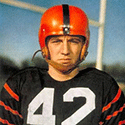



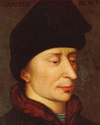







 Yes, it's like a lava lamp.
Yes, it's like a lava lamp.


